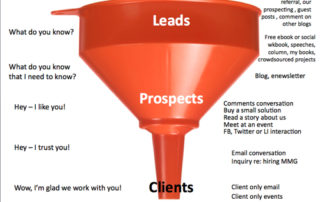Advertising agency owners take money out of their own pocket to stay overstaffed
I have found that most agency owners are very generous people. They love the people they work with and want to create an amazing working environment. They are also very slow when it comes to firing an employee – whether it’s because the person isn’t performing at the right level or because billings have dropped and they just don’t need that person any more. All of that is lovely. But, you are literally taking that money out of your own pocket when you make that decision. I can’t tell you how many times an agency owner has lamented to me, “I know I should let Carl go but he’s putting two kids through college.” Yup – and you are taking money that should be going into your kid’s college fund (or your retirement or investment account) and handing it to Carl’s kids. Even more than that – by not firing an employee, you are putting your entire agency at risk, for the sake of this one person. Your responsibility is to run the agency in a fiscally sound manner so that the agency survives the ups and downs of cash flow, clients coming and going and other economic factors. I saw way too many good agencies just close their doors in the last recession because the agency owner stubbornly held onto too many people and didn’t trim overhead expenses fast enough. One ratio that can help you stay in alignment is a rule of thumb we use at Agency Management Roundtable with our agency clients. On average, for every $100,000 - $125,000 in AGI (adjusted gross income = your gross billings minus your costs of goods sold) you should have one full time equivalent. If [...]









